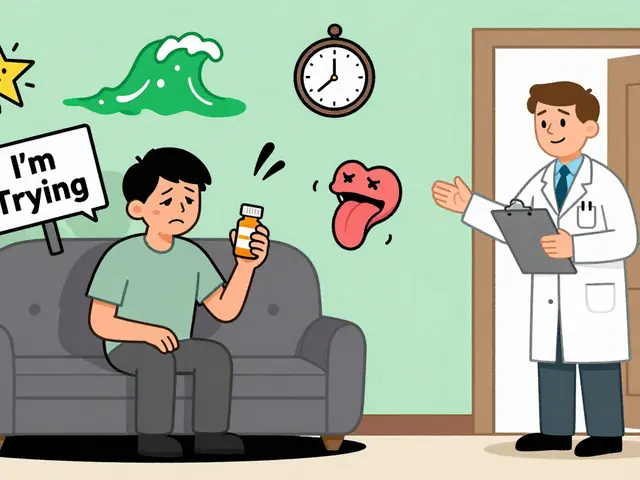Allergic Rhinitis – What It Is and How to Find Fast Relief
Allergic rhinitis is the fancy name for a runny, itchy nose that shows up when your immune system overreacts to something harmless. Think sneezing fits, watery eyes, and a constant urge to blow your nose. It can hit anyone, but kids and people with other allergies tend to notice it more.
The problem starts when tiny particles like pollen, dust, or pet dander enter your nose. Your body thinks they’re dangerous, releases histamine, and that’s why you feel that annoying tickle and congestion. The inflammation can also make your throat feel scratchy and your head feel heavy.
Identify Your Triggers
First step is figuring out what’s causing the reaction. Keep a short diary for a week – note when symptoms start, where you are, and what you were doing. If spikes line up with mowing the lawn, you’re probably reacting to grass pollen. If symptoms flare up after cleaning, dust or mold might be the culprit. Pets are another big one; even a short cuddle can set off a flare.
Once you know the trigger, you can cut down exposure. Close windows on high‑pollen days, use a HEPA filter, wash bedding in hot water, and give pets a bath regularly. Small changes can cut the number of sneezes dramatically.
Simple Ways to Ease Symptoms
When symptoms hit, reach for a saline nasal rinse. A quick squirt clears mucus and reduces irritation without any chemicals. Over‑the‑counter antihistamines like cetirizine or loratadine work well for most people; they block histamine and calm itching and sneezing.
If a nasal spray feels better, try a steroid spray such as fluticasone. It reduces swelling in the nasal passages and can be used daily during allergy season. Decongestant pills or sprays help for a short burst, but don’t use them for more than a few days – they can make congestion worse later.
Staying hydrated keeps mucus thin, making it easier to clear. Warm tea with honey soothes the throat, and a little extra rest helps your body recover. If you notice that allergies are making you feel down or anxious, you’re not alone; there’s a clear link between allergic disorders and mental health. Taking a few minutes for deep breathing or gentle exercise can lift mood while you manage the nose symptoms.
Know when to see a doctor: if you can’t sleep, if symptoms last more than two weeks, or if you develop sinus pain, fever, or wheezing. A professional can prescribe stronger meds, allergy shots, or test you for specific allergens.
In short, allergic rhinitis is a daily nuisance that you can tame. Spot the trigger, use a saline rinse, pick the right antihistamine or spray, and keep an eye on your overall well‑being. With these steps, you’ll cut down sneezes and get back to breathing easy.

How Fluticasone Nasal Spray Reduces Inflammation: The Science Explained
- By : Tamsin Riverton
- Date : Aug 12 2025
Discover the science behind fluticasone nasal spray and how it calms inflammation in the nose, with easy explanations, comparisons and FAQs.




